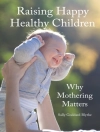While the disability rights movement of recent decades has a rich and well-documented history, it is a history mostly focused on the Global North.
Disability in Africa presents an interdisciplinary approach to cultural, health, and policy challenges that disability issues have raised throughout the African continent. The volume draws on the achievements of disability studies while acknowledging the demands and challenges of particular African contexts. The authors bring diverse methodological approaches and expertise to bear on these issues, ranging from anthropology and bioethics to special education and community rehabilitation. Essays consider indigenously African definitions of disability as well as exploring disability at the intersection of poverty, geography, and globalized biopolitics. Contributors analyze the difficulties of implementing disability policy across the continent while also being mindful of successful approaches taken at local, national, and international levels.
Disability in Africa thus charts new avenues for disability studies research in and about Africa.
قائمة المحتويات
PART ONE: INTRODUCING THE FIELD
Africanizing Disability: Toward an Articulation of African Disability Studies -Toyin Falola and Nic Hamel
Disability Studies: A Disciplinary Overview – Toyin Falola, Anna Lee Carothers, and Nic Hamel
PART TWO: THEORIZING DISABILITY IN AFRICA
An African Ethics of Social Well-Being: Understanding Disability and Public Health – Maria Berghs
Rethinking African Disability Studies: From the Cultural-Deficit Model to a Socio-Economic Perspective – Fikru Negash Gebrekidan
Disability in Africa: A Cultural/Religious Perspective – Mary Nyangweso
Disability and Cultural Meaning Making in Africa Kathryn – Linn Guerts
PART THREE: REPRESENTATION AND CULTURAL EXPRESSIONS
Disfiguration, Trauma, and Disability: Reclaiming the Body and the Case against Prosthetics – Ernest Cole
Paradoxical Dramaturgies: Disability, Ritual, and Resistance in the Plays of Wole Soyinka – Nic Hamel
Demonizing Madness: Mental Disorders as Deus Ex Machina in Nollywood Movies – Kolawole Olaiya
Masculinity, Disability, and Empire in J.M. Coetzee’s Waiting for the Barbarians – Saloua Ben Zahra
PART FOUR: EDUCATION, COMMUNITY, AND CAREGIVING
Addressing Poverty and Inequality in Sub-Saharan Africa: Fostering Inclusive Education of Children with Disabilities – Serges Djoyou Kamga
Inclusive Education and Cultural Relevance in East Africa – Angi Stone-Mac Donald and Ozden H. Pinar-Irmak
Youth, Women, and Disability in Africa: Economic Empowerment and Community Strategies to Leave No One Behind – Ntombekhaya Tshabalala, Elizabeth Ladner Babi Agbettor, and Theresa Lorenzo
Caregiving and Support in African Context: A Personal Perspective Frances Emily Owusu-Ansah
PART FIVE: ACTIVISM AND BARRIERS TO INCLUSION
So that the Stew Reaches Everybody: Women’s Negotiations of Leadership and Power in Ghana’s DPO’s – Denise M. Nepveux
Disability Policy, Movement Activism, and the Non-Enforcement of a Disability Act: The Case of Ghana – Emmanuel Sackey
Students with Disabilities’ Lack of Opportunity for Sport and Recreational Activities: The Case of South African Universities – Desire Chiwandire
Rehabilitation and the Realization of Disability Rights – Serges Djoyou Kamga
Conclusion: A Research Agenda for African Disability Studies
Anna Lee Carothers and Toyin Falola
Notes on Contributors
Selected Bibliography
Index
عن المؤلف
TOYIN FALOLA is Professor of History, University Distinguished Teaching Professor, and the Jacob and Sanger Mossiker Chair in the Humanities at the University of Texas at Austin.












